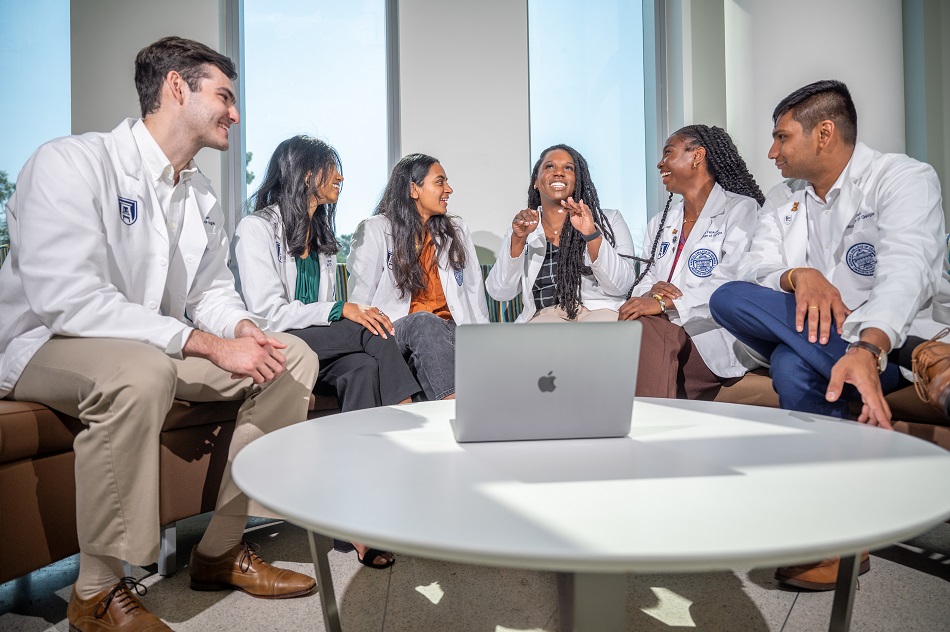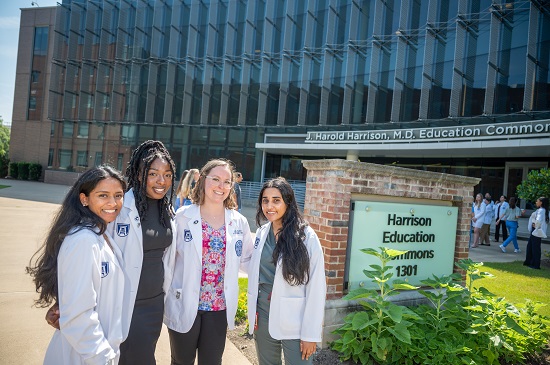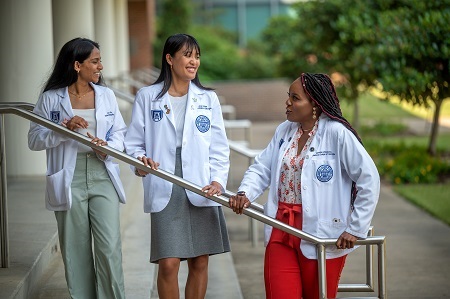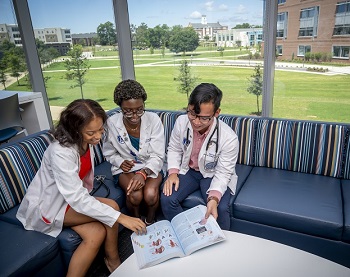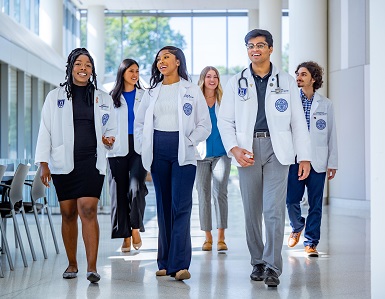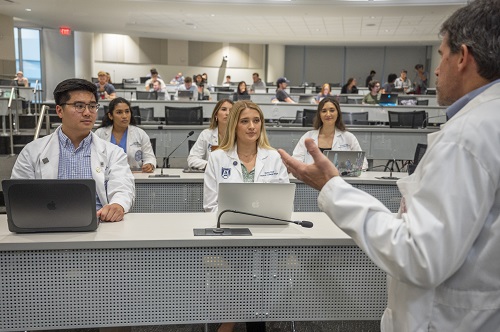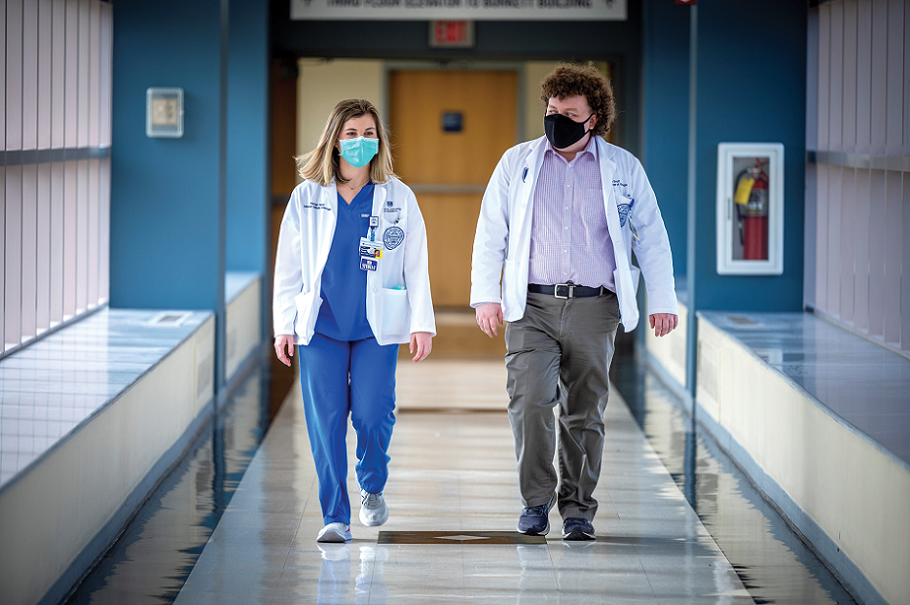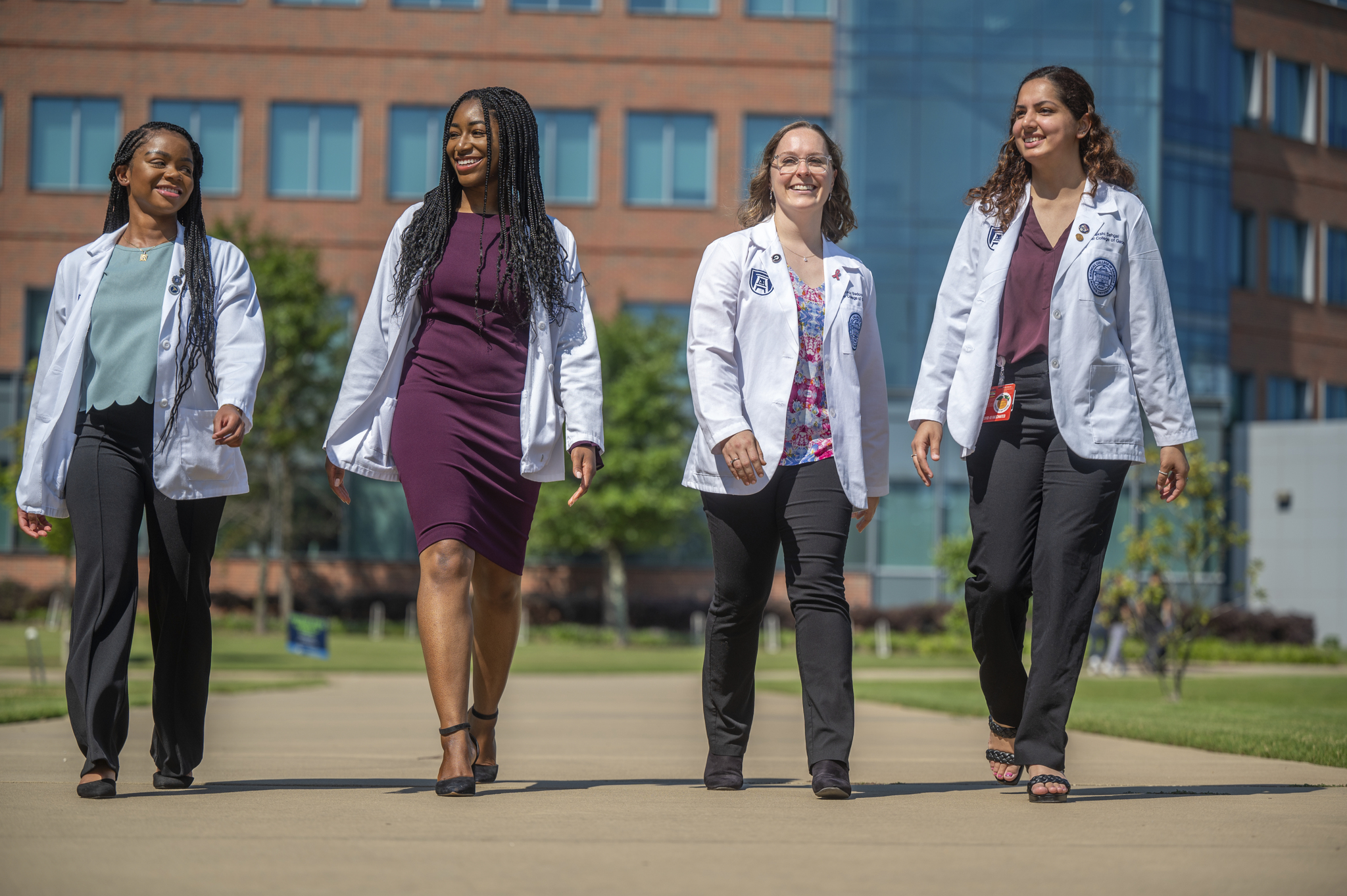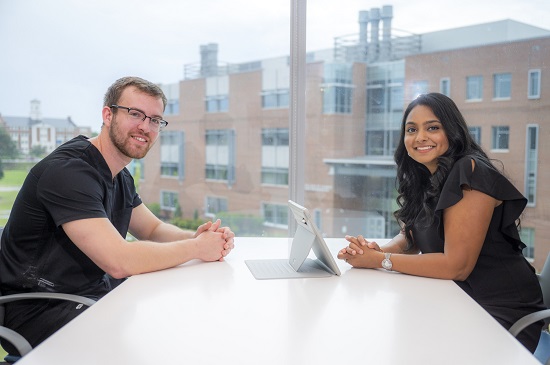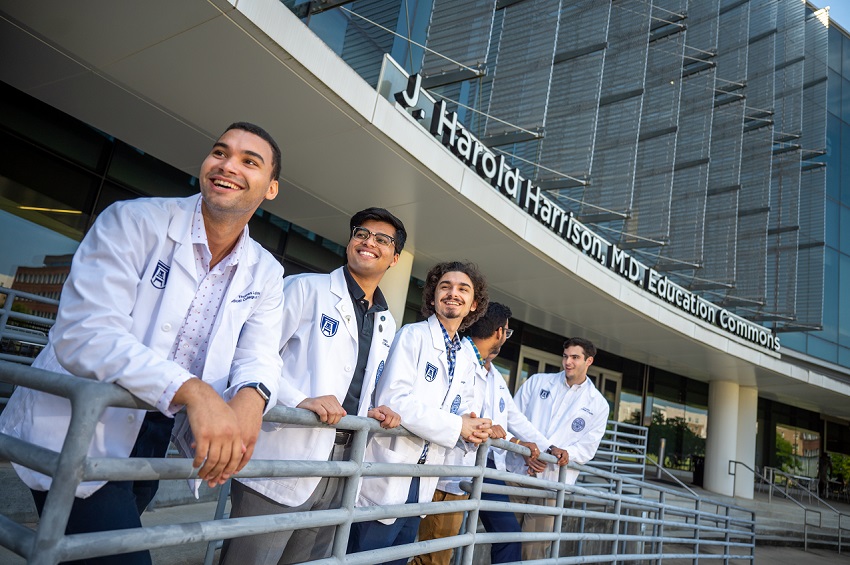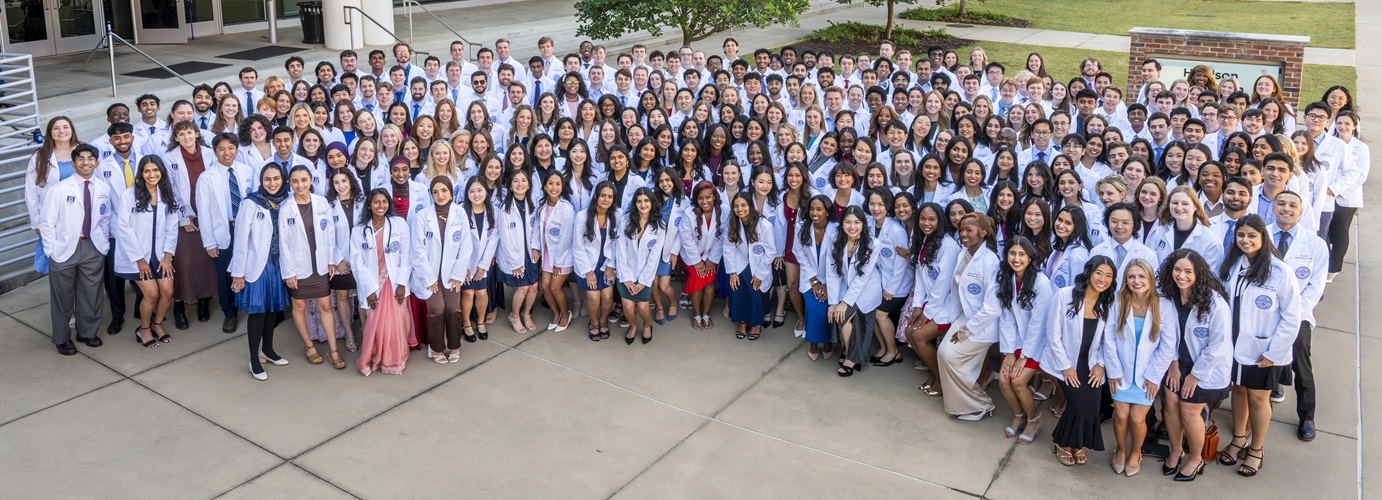
MCG Admissions
As one of the nation's oldest medical schools, the Medical College of Georgia is proud of our history and excited about our future.
We are the state of Georgia's flagship medical school and are committed to educating physicians who will lead the state of Georgia and the world to better health by providing excellence in biomedical education, discovery, and practice.
Meeting this challenge demands the most exceptional and talented students to train to become our next generation of outstanding physicians and world-class researchers. lt also requires that our physician workforce be as diverse as the population it serves, culturally and socioeconomically.
We seek students who are committed to academic excellence and Augusta University's core values of collegiality, compassion, excellence, inclusivity, integrity, and leadership. No matter where you are in your educational path, our office is available to answer any questions you have about the admissions process.
Jump to: Applying to MCG Interviews at MCG
Contact Us
Medical College of Georgia Office of Admissions
Health Sciences Campus
706-721-3186
Hospital Access Road, BC 1100, Augusta, GA 30912
706-721-0959
Applying to MCG
Interviews at MCG
Each year, the Medical College of Georgia at Augusta University invites approximately 640 students to interview for admission to the entering class. Students invited to interview can expect to participate in a Multiple Mini-Interview (MMI) process, which allows for a consistent evaluation of all candidates. Interviews are by invitation only. Find out more here!
